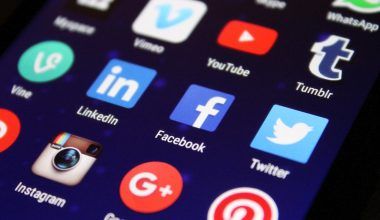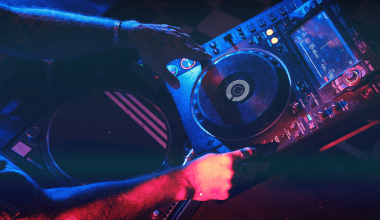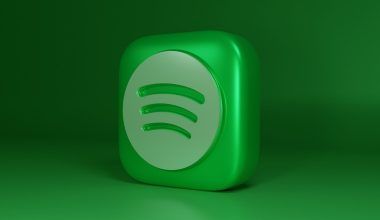Ever heard of music publishers and wondered what they do or how they make money? You’re not alone! Many people are curious about the world of music publishing because it’s an important part of the music industry. So, let’s dive into the simple but fascinating world of music publishers. In this blog, we’ll explore how do music publishers make money, their role, and how they help artists earn from their songs.
Music publishers are like the backbone of the music business. They ensure that songwriters and composers are paid when their work is used. This includes everything from radio plays to movies and even live performances. Without music publishers, artists would miss out on many earnings, and it would be harder for them to focus on creating music.
By the end of this guide, you’ll know how music publishers earn their money, how they share it with artists, and why they’re so important. Let’s get started!
What is Music Publishing in Simple Terms?
Music publishing is all about managing the rights to songs. Every song has something called a copyright, which gives its creator the legal right to control how it’s used. A music publisher works to protect this copyright and make sure that the creator earns money when their song is played, sold, or used in any way.
For example, if someone plays your song at a concert or uses it in a TV commercial, you deserve to get paid. A music publisher helps you collect this money. They also look for ways to promote your music so that it gets used more often, which means more earnings for you.
How Do Music Publishers Make Money?
Music publishers have several ways to earn money. Here are the main sources of their income:
1. Performance Royalties
Whenever your song is played in public, such as on the radio, TV, or even in a shopping mall, performance royalties are generated. These royalties are collected by organizations like ASCAP, BMI, or PRS. The publisher helps make sure the royalties are collected and then shares them with the songwriter or composer.
For example:
- A restaurant plays your song on their speakers.
- A radio station includes your song in their playlist.
- Your song is used in a public event or concert.
In all these cases, performance royalties are earned, and the publisher ensures you get paid.
2. Mechanical Royalties
Mechanical royalties are earned when your song is reproduced, such as when it’s:
- Pressed on a CD or vinyl.
- Downloaded from platforms like iTunes.
- Streamed on services like Spotify.
These royalties come from the sale or streaming of your music. The publisher works with platforms to collect this money on your behalf.
3. Sync Licensing Fees
This is one of the most exciting ways publishers make money. Sync licensing happens when your song is used in a visual project like a movie, TV show, advertisement, or video game. For example:
- A Netflix show uses your track as background music.
- A commercial for a car brand features your song.
- A YouTuber uses your song in their video.
The publisher negotiates a fee for the use of your song and ensures you get a fair share. Sync licensing can pay very well, especially if your song is used in a big production.
4. Print Royalties
Print royalties are earned when sheet music of your song is sold. While this might not be as common as it used to be, it’s still a source of income, especially for educational and classical music.
5. Digital Royalties
Digital platforms like Spotify, YouTube, and Apple Music have changed the way people listen to music. Every time your song is streamed on these platforms, it earns digital royalties. Publishers work to track these streams and collect your earnings.
6. Grand Rights Licensing
If your music is used in a theatrical production, such as a musical or opera, the publisher handles the licensing. This is called grand rights licensing. Though niche, it can bring in a significant income.
What Do Music Publishers Do for Artists?
Music publishers aren’t just about collecting money—they also play a big role in helping artists succeed. Here’s how:
1. Copyright Protection
The first thing a music publisher does is make sure your song is registered with copyright organizations. This protects your work from being stolen or used without permission.
2. Royalty Collection
Publishers make sure you get paid every time your song is used, whether it’s on the radio, in a movie, or on a streaming platform. Without them, tracking these payments would be very hard for artists.
3. Licensing
They handle all the legal work for licensing your music. This includes negotiating fees for sync deals or allowing other artists to record cover versions of your song.
4. Promoting Your Music
Publishers pitch your songs to media producers, ad agencies, and even other musicians to get more exposure. The more your song is used, the more money you make.
5. Helping with Collaborations
Some publishers help connect you with other artists, producers, or songwriters. This can lead to exciting collaborations and opportunities.
How Do Artists Benefit from Music Publishers?
Here are some of the benefits artists get from working with publishers:
- Steady Income: Publishers make sure royalties are collected and paid regularly.
- Time to Create: With the business side handled, artists can focus on making music.
- Opportunities: Publishers open doors to licensing deals, sync placements, and collaborations.
- Protection: Copyright protection ensures your work isn’t used unfairly.
Examples of Music Publishing Success Stories
1. Sync Licensing Success
Imagine an indie artist whose song gets picked up for a major TV commercial. Not only does this bring a big payday, but it also gives their music exposure to millions of viewers.
2. Streaming Royalty Boost
A songwriter might have a track that becomes a viral hit on TikTok. The publisher ensures they earn from every stream and even negotiates additional deals for the song.
Common Questions About Music Publishers
1. Do Music Publishers Take Ownership of Songs?
No, publishers don’t own your song outright. They usually share ownership or earn a percentage of the royalties.
2. How Much Do Music Publishers Earn?
Publishers often take 50% of the royalties, but this can vary depending on the deal.
3. Do I Need a Music Publisher?
If you want to maximize your song’s earning potential and reach a wider audience, a publisher can be very helpful.
Trends in Music Publishing
1. Rise of Independent Artists
With platforms like Deliver My Tune, more artists are exploring self-publishing to keep control of their music and earnings.
2. Focus on Streaming Royalties
Streaming platforms are becoming the largest source of revenue for publishers and artists.
3. Technology in Publishing
AI tools are helping publishers track royalties more accurately and promote music more effectively.
Choosing the Right Music Publisher
Here are some tips for finding the right publisher:
- Look for Experience: A publisher with a good track record is more likely to help you succeed.
- Check Their Services: Make sure they handle licensing, royalties, and promotion.
- Understand the Contract: Always read the fine print to know how much they’ll take from your earnings.
Conclusion
Now you know how do music publishers make money! They play an important role in the music industry by helping artists earn from their creations. Whether through royalties, sync licensing, or other deals, publishers ensure that creators are paid for their hard work.
For artists, publishers provide financial security, opportunities, and support. If you’re a musician, working with a publisher can help you grow and focus on what you do best: creating amazing music
Related Articles:
For further reading, explore these related articles:
- Music Publishing Explained: The Key to Managing Your Songs
- How to Publish My Music: A Complete Guide for Aspiring Artists
- The Ultimate Guide to Types of Music Publishing Deals
For additional resources on music marketing and distribution, visit Deliver My Tune.






